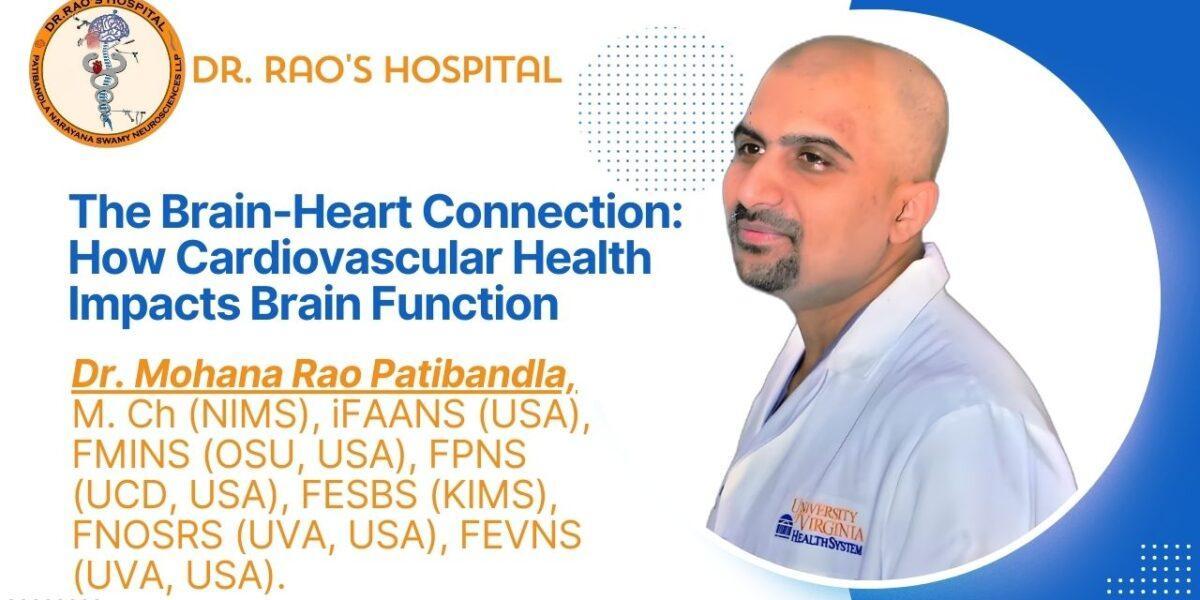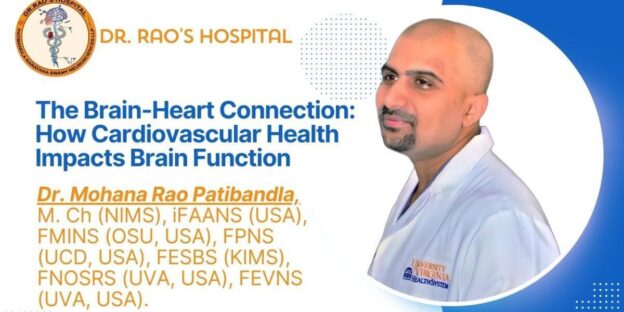The Brain-Heart Connection: How Cardiovascular Health Impacts Brain Function
The Brain-Heart Connection: How Cardiovascular Health Impacts Brain Function
The brain and heart are two of the most essential organs in the body and are closely connected. Cardiovascular health refers to the health of the heart and blood vessels. Good cardiovascular health is essential for good brain health.
When the heart is not healthy, it can’t pump blood effectively to the brain. This can lead to several problems, including stroke, dementia, and Alzheimer’s.
How does cardiovascular health impact brain function?
There are several ways that cardiovascular health impacts brain function. These include:
- Blood flow: The brain needs a constant blood supply to function correctly. When the heart is not healthy, it can’t pump blood effectively to the brain. This can lead to decreased blood flow to the brain, which can cause problems with memory, thinking, and other cognitive functions.
- Oxygen: The brain also needs a constant oxygen supply to function correctly. When the heart is not healthy, it can’t deliver enough oxygen to the brain. This can lead to problems with memory, thinking, and other cognitive functions.
- Neurotransmitters: The brain uses neurotransmitters to communicate with itself. When the heart is not healthy, it can affect the production and release of neurotransmitters. This can lead to problems with mood, sleep, and other brain functions.
What are the risks of having poor cardiovascular health?
The risks of having poor cardiovascular health include:
- Stroke: A stroke is a sudden interruption of blood flow to the brain. This can cause brain damage and death.
- Dementia: Dementia is a decline in cognitive function. It can cause problems with memory, thinking, and other brain functions.
- Alzheimer’s disease: Alzheimer’s disease is a type of dementia caused by the death of brain cells.
- Heart disease: Heart disease is a group of diseases that affect the heart. It can cause chest pain, heart attack, and other problems.
How can I improve my cardiovascular health?
There are several things you can do to improve your cardiovascular health. These include:
- Eat a healthy diet: A healthy diet includes plenty of fruits, vegetables, and whole grains. It also limits unhealthy fats, salt, and sugar.
- Exercise regularly: Exercise helps to keep your heart and blood vessels healthy. Aim for at least 30 minutes of moderate-intensity exercise most days of the week.
- Maintain a healthy weight: Being overweight or obese increases your risk of heart disease, stroke, and other health problems.
- Don’t smoke: Smoking damages your heart and blood vessels. If you smoke, quit as soon as possible.
- Manage your stress: Stress can raise your blood pressure and heart rate. Find healthy ways to manage stress, such as exercise, relaxation techniques, or spending time with loved ones.
Dr. Rao, the best neurosurgeon in India from Guntur
If you are concerned about your cardiovascular health, it is essential to see a doctor. Dr. Rao is a highly experienced neurosurgeon specializing in treating brain and spinal cord disorders. He is the best neurosurgeon in India from Guntur and works at Dr. Raos Hospital.
Dr. Rao has a wealth of experience treating various brain and spinal cord disorders. He is also an expert in the brain-heart connection and can help you understand how cardiovascular health impacts brain function. In a recent deccanherald
Dr. Rao is the best choice if you are looking for a top neurosurgeon in India. He is highly experienced, skilled, and compassionate. He will provide you with the best possible care and help you achieve your health goals.
To book an appointment with Dr. Rao, please visit his website (drraoshopsitals) or call his office at 9010056444 or 9010057444.


